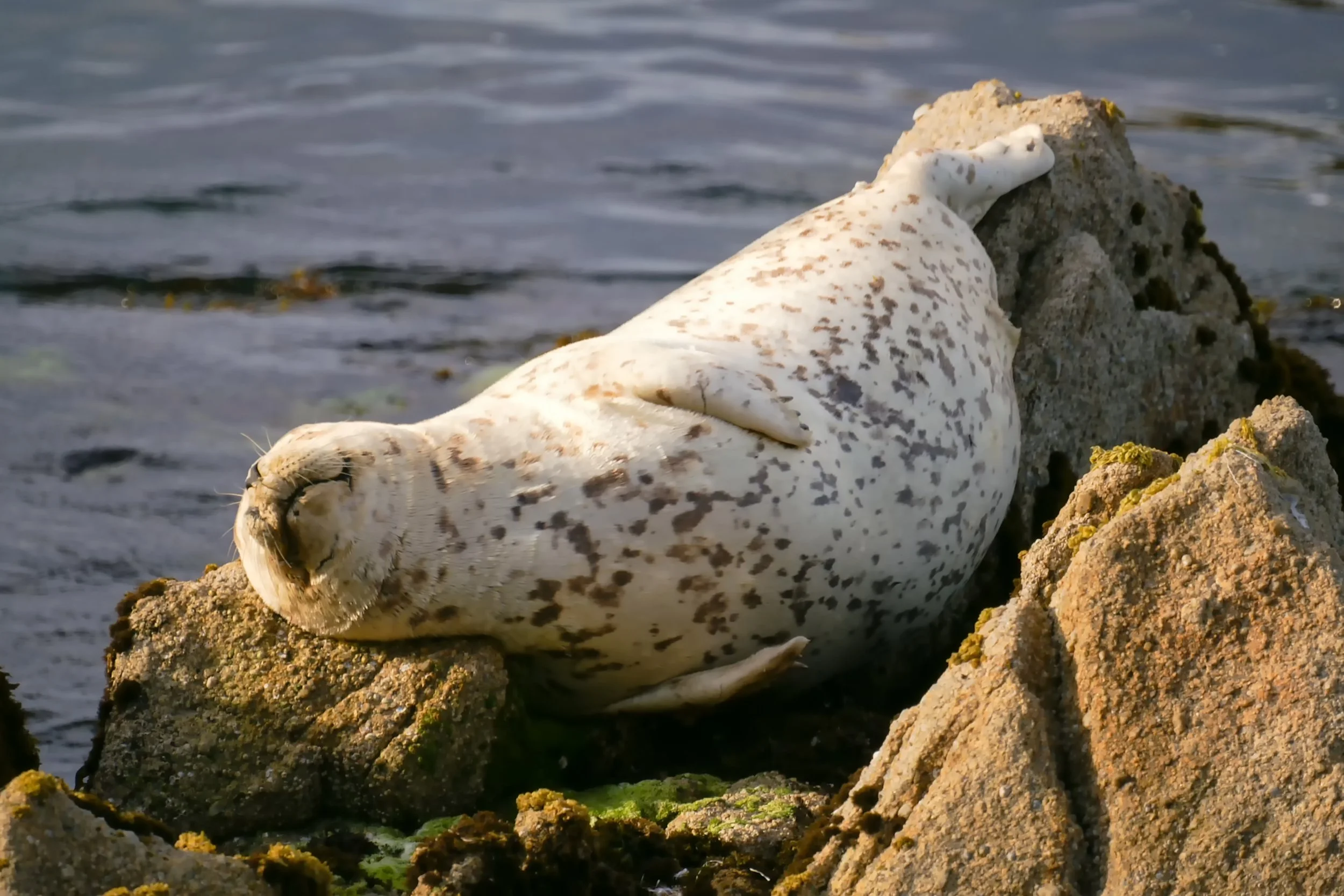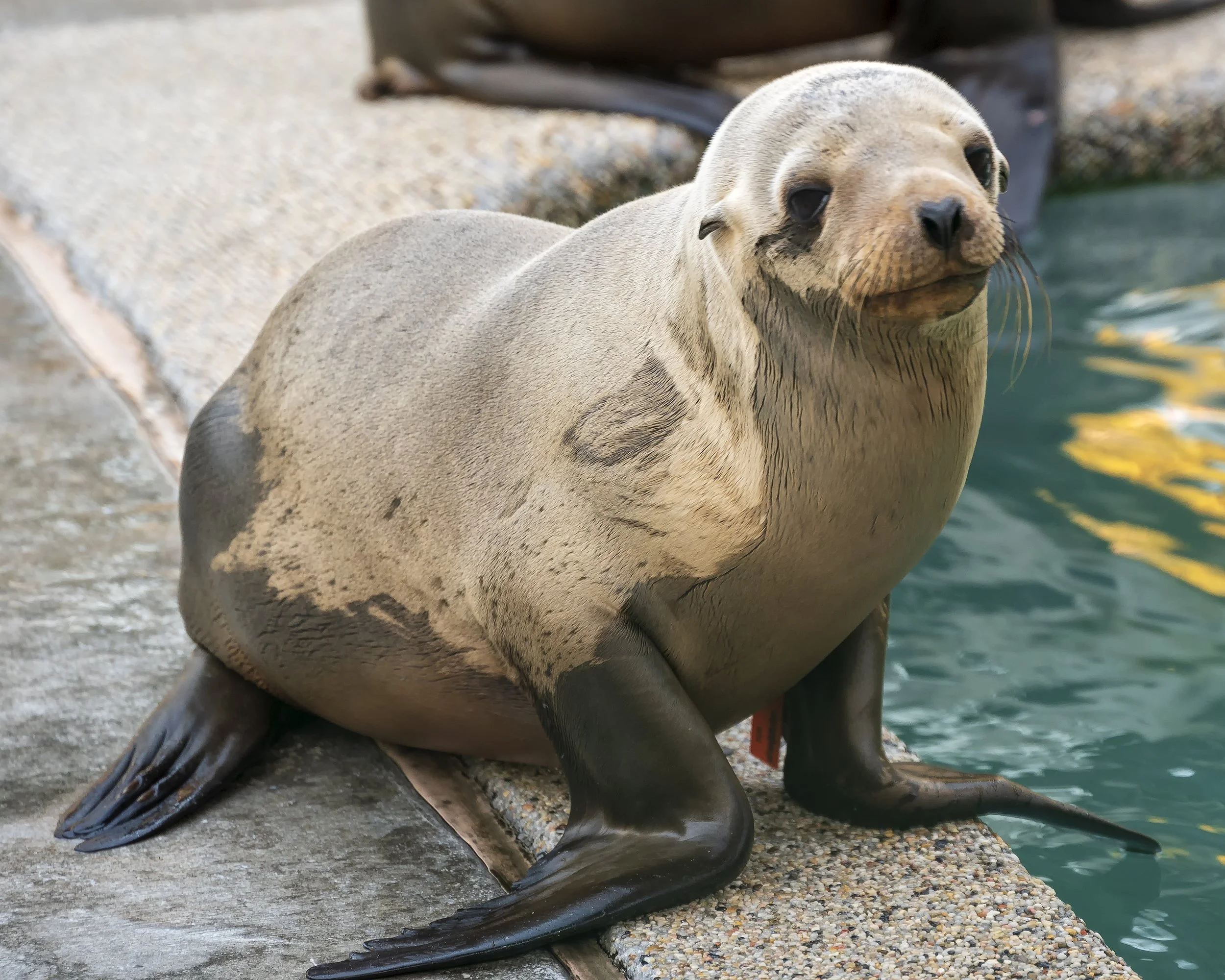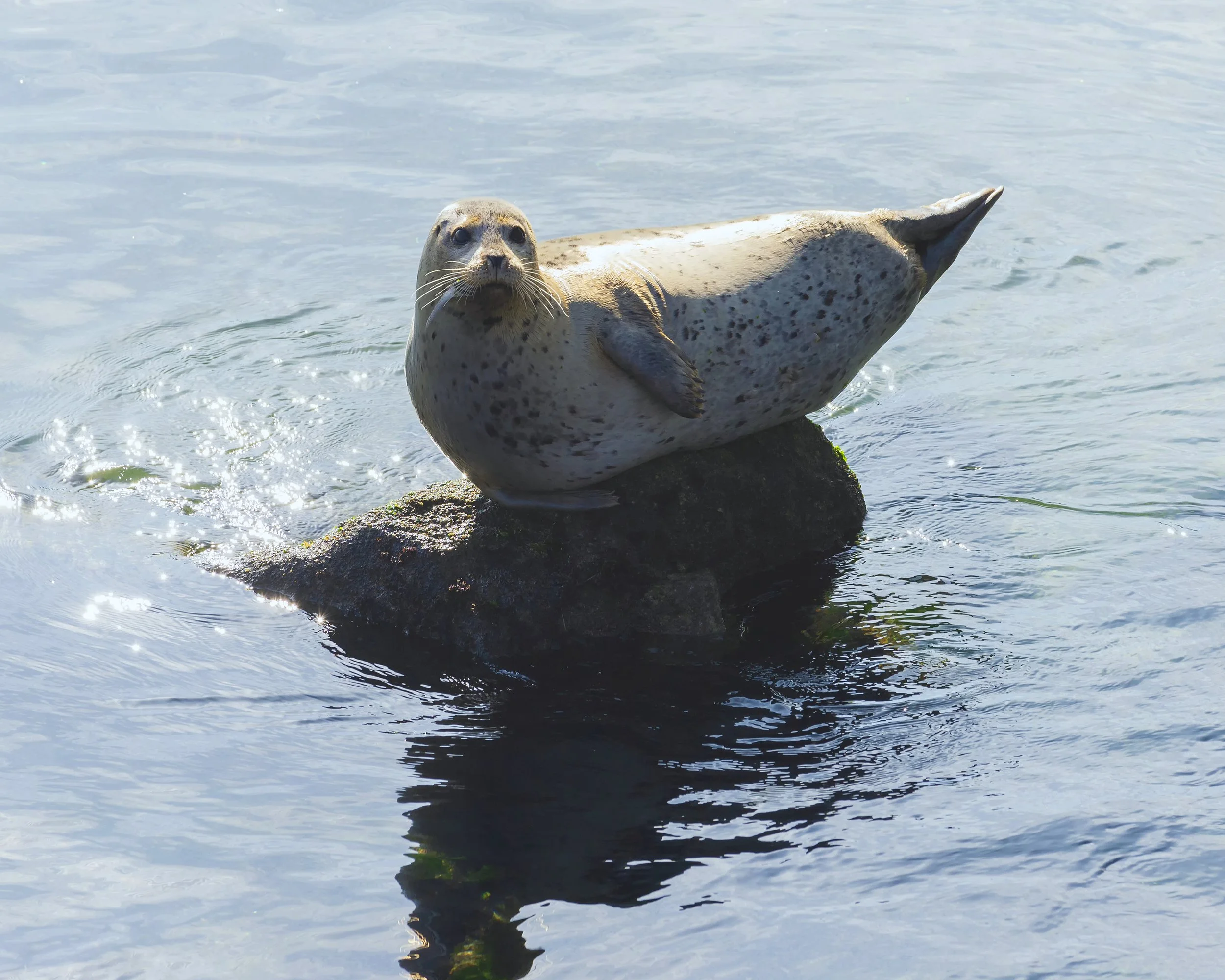The Symbolism of Harbor Seals: A Deep Dive into Cultural and Mythological Significance
Photo credit: Steve Tabor
Harbor seals (Phoca vitulina), known for their expressive eyes and playful demeanor, have captivated human imagination for centuries. These marine mammals are found along the temperate and Arctic coastlines of the Northern Hemisphere. Beyond their ecological importance, harbor seals hold significant symbolic meanings in various cultures and mythologies. This article explores the rich symbolism associated with harbor seals, examining their roles in folklore, mythology, and contemporary interpretations.
Physical Characteristics and Natural Behavior
Before delving into their symbolism, it's essential to understand the natural characteristics of harbor seals. These animals are known for their adaptability to both marine and freshwater environments. They possess a streamlined body, allowing them to swim gracefully, and their large, soulful eyes contribute to their endearing appearance. Harbor seals are often seen basking on rocky shores or ice floes, embodying a sense of relaxation and ease.
Photo credit: Steve Tabor
Symbolism in Various Cultures
1. Celtic and Norse Mythology: In Celtic and Norse mythology, seals are often associated with transformation and mystery. The Selkie, a mythical creature that can transform from a seal to a human, is a central figure in Scottish, Irish, and Icelandic folklore. According to legend, Selkies shed their seal skins to become human and often form relationships with humans. The Selkie myth symbolizes the themes of duality, the connection between the natural and human worlds, and the idea of longing and belonging.
2. Inuit and Native American Traditions: For the Inuit and various Native American tribes, seals are vital both as a resource and a spiritual symbol. The Inuit people, who rely on seals for sustenance, view them with great respect and reverence. Seals are considered messengers of the sea goddess Sedna, who controls the availability of marine animals. In this context, seals symbolize survival, abundance, and the deep connection between humans and the natural world.
In Native American traditions, particularly among coastal tribes, seals are seen as protectors and guides. The seal’s ability to navigate both land and sea represents adaptability and the importance of living harmoniously with the environment. Seals are also viewed as symbols of intuition and emotional insight, reflecting their keen awareness and sensitivity to their surroundings.
Photo credit: Steve Tabor
Themes and Symbolic Meanings
1. Adaptability and Resilience: Harbor seals’ ability to thrive in various environments symbolizes adaptability and resilience. They navigate the challenges of their habitat with grace, teaching us the importance of flexibility and perseverance in the face of adversity.
2. Playfulness and Joy: The playful nature of harbor seals, often seen frolicking in the water, embodies joy and lightheartedness. They remind us to embrace moments of fun and relaxation, even amidst life’s challenges.
3. Mystery and Transformation: Drawing from the Selkie mythology, seals represent mystery and transformation. They encourage us to explore the hidden aspects of ourselves and to embrace change as a natural and enriching part of life.
4. Protection and Guidance: In various cultural traditions, seals are seen as protectors and guides. Their presence symbolizes safety and the importance of listening to our inner voice and intuition.
Photo credit: Steve Tabor
Modern Interpretations and Conservation
In contemporary times, the symbolism of harbor seals extends to themes of environmental conservation and the interconnectedness of ecosystems. Harbor seals are indicator species, meaning their health reflects the overall health of their environment. Protecting harbor seals and their habitats highlights the broader need for marine conservation and sustainable practices.
Organizations dedicated to marine conservation often use the image of the harbor seal to raise awareness about the impacts of pollution, climate change, and overfishing on marine life. The harbor seal thus becomes a symbol of the urgent need to protect our oceans and the diverse life they support.
Conclusion
Harbor seals, with their enchanting presence and significant ecological roles, carry a wealth of symbolic meanings across different cultures and times. They represent adaptability, joy, mystery, and protection, bridging the natural world with human experience. In modern contexts, they also serve as powerful symbols of environmental conservation. By understanding and appreciating the symbolism of harbor seals, we can deepen our connection to the natural world and foster a greater commitment to preserving it for future generations.
Learn more at the Marine Mammal Care Center








